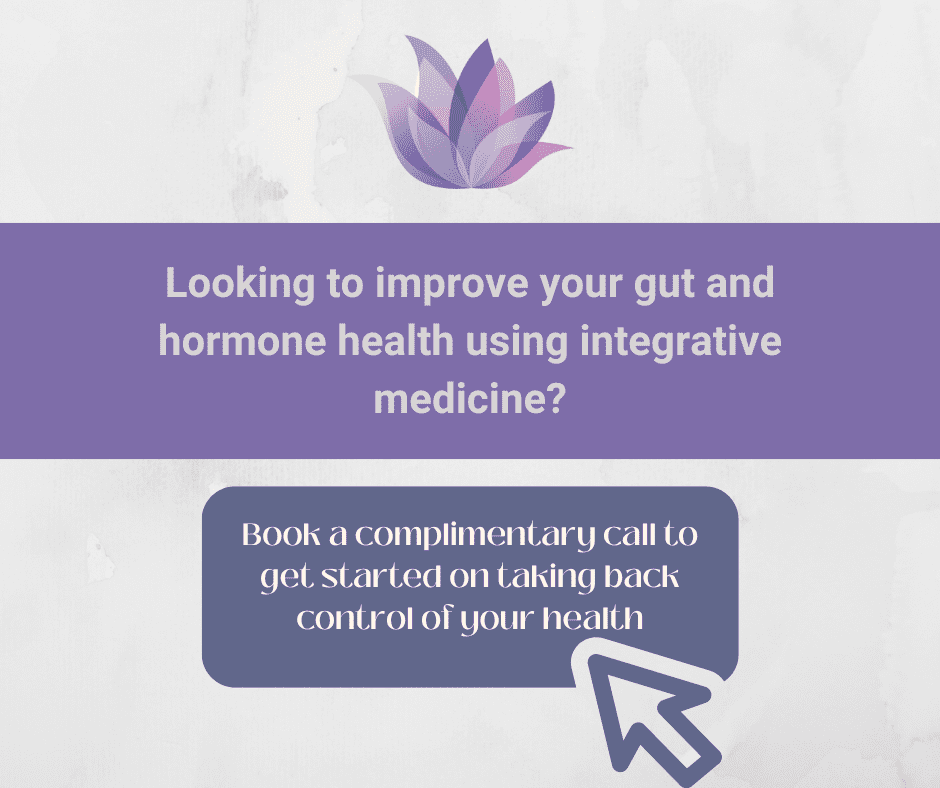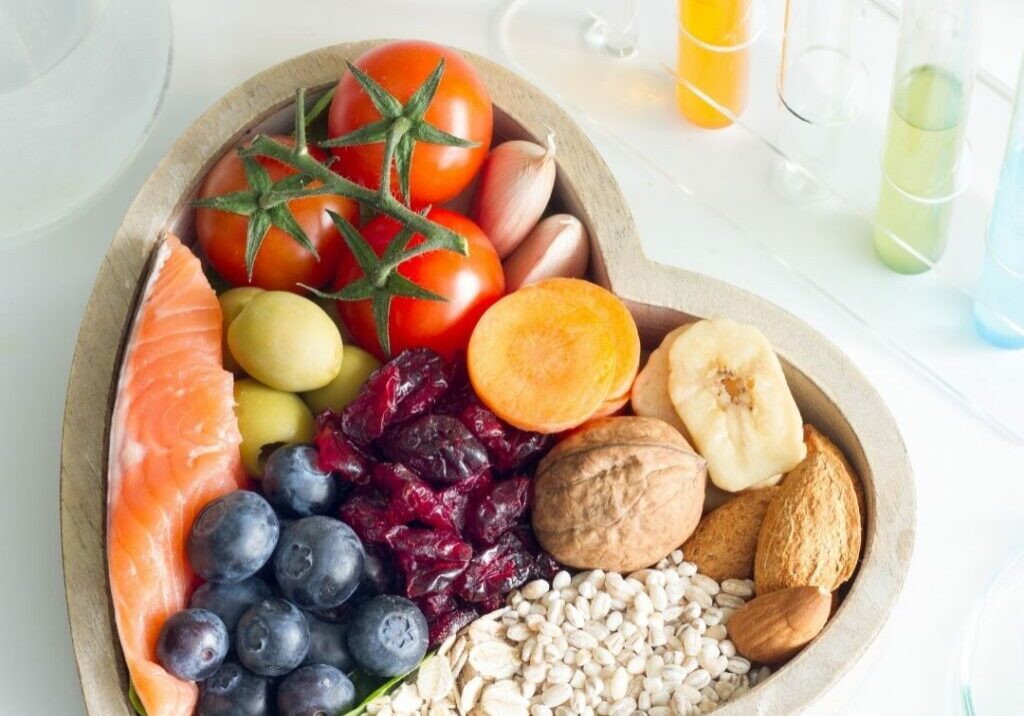Reducing your insulin resistance is not about eating fewer carbs and working out harder. It is about incorporating diet and lifestyle hacks to slowly reverse insulin resistance. It took time for your body to develop it, so it will take time for it to reverse. Diet and lifestyle modifications may work better than medications according to some researchers. Expect it to take about 3-6 months to see changes in your blood work.
Let’s break down the 10 tips into two categories.
Diet
Eat Enough Fiber
Fiber is crucial for the bacteria in the gut. Adequate fiber intake is at least 25 to 30 grams of soluble fiber a day. Foods that are rich in fiber include oatmeal, legumes, flaxseeds, and vegetables. A healthy gut leads to insulin sensitivity and weight loss.
Build a balanced plate
Pairing carbs with protein and ideally fat will allow them to slowly absorb into the bloodstream. Causing less of a spike in blood sugar and less insulin resistance to develop.
Consume carbs in moderation
Low carb or keto diets are generally not sustainable for most people. Instead, find out your carb tolerance. Start with a moderate carb allowance like 100 grams/day and adjust depending on what your blood sugar levels are in response to that carb level. Over time, you will find your sweet spot of the right amount of carbs that work for you.
The fastest way to do this is with a CGM device. This gives you true data and will allow you to see what your glucose is in response to what you ate.
Choose low glycemic index carbs or complex carbs.
Not all carbs are created equal. Simple carbohydrates like white bread and pasta cause a blood sugar spike because they absorb quickly.
The GI is a scale that measures a food’s ability to raise blood sugar. Complex carbs are more nutritious and contain fiber, facilitating the slow absorption of carbs into the bloodstream. Refined carbs absorb quickly and cause blood sugar spikes.
Add antioxidants like cinnamon and green tea to your diet.
Antioxidants lower oxidative stress in the body and fight insulin resistance. Cinnamon has been studied in women with PCOS and found to lower insulin levels significantly over 12 weeks. It also decreases inflammation which is a driver of PCOS symptoms.
The data is mixed on green tea, but overall looks promising.
LIFESTYLE
Reduce your stress.
Stress wreaks havoc not only on insulin resistance but also on inflammation. Chronic stress will cause insulin resistance which cascades into more inflammation and then more insulin resistance. The result is high blood sugar levels that are stored in fat.
Prioritize sleep.
Adults need 7 to 9 hours of sleep a night. Poor sleep causes hormone disruptions in cortisol. This spike leads to weight gain and inflammation that can make hormonal imbalances worse.
Exercise Daily
An active lifestyle reduces insulin resistance. If you have a sedentary lifestyle, then start by moving your body every 1.5 hours. Even 10 minutes every few hours will improve your levels. The best time to move your body is right after a meal, as it will lower your blood glucose levels. The more steps you take, the better result you will get. A 2006 study demonstrated people who were sedentary (less than 150 minutes of exercise/week) were twice as likely to have metabolic syndrome.
Consider Intermittent Fasting.
Intermittent fasting has been shown in recent studies to help start weight loss in those that are obese or maintain weight in those at risk for diabetes (like PCOS). It is an eating plan where you designate a fasting time frame and an eating time frame. Data suggests that the body needs a 12-hour fasting window each day to rest and replenish. If you extend this window, you can gain the benefits of weight loss and decreasing insulin resistance. Do you want to learn more about IF, check out this podcast episode?
Get Adequate Magnesium Daily.
Magnesium deficiency is common in the U.S. due to the standard American diet. But Magnesium is critical because it is necessary for many reactions in the body. It plays a role in insulin signaling and glucose regulation. Low magnesium levels are associated with chronic diseases such as diabetes and heart disease. Women should be getting 320 mg of magnesium/day. Magnesium-rich foods include cashews, spinach, pumpkin seeds, sunflower seeds, halibut, and dark chocolate.








